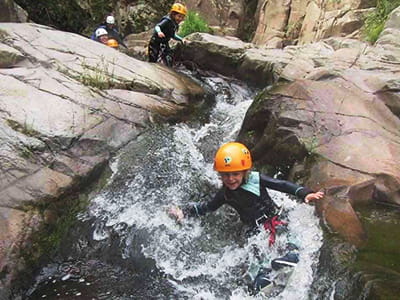Cap de Creus Natural Park: A Coastal Wonderland of Catalonia
Cap de Creus Natural Park, established in 1998, is a stunning natural reserve located at the easternmost point of the Iberian Peninsula in Catalonia, Spain. Spanning approximately 13,843 hectares, this park is unique as it encompasses both marine and terrestrial ecosystems, making it the first of its kind in Spain. Renowned for its breathtaking landscapes, rich biodiversity, and cultural significance, Cap de Creus is a must-visit destination for nature lovers and outdoor enthusiasts.
Cap de Creus Natural Park Geological Marvel
The park is characterized by its dramatic geological formations shaped by centuries of erosion from the Mediterranean Sea and fierce Tramuntana winds. The landscape features rugged cliffs, hidden coves, and peculiar rock formations that resemble surreal sculptures. One notable example is the Camel, a rock formation that has become an iconic symbol of the area. The geological composition includes metamorphic and granite rocks that date back over 400 million years, providing a fascinating glimpse into the Earth’s history.
Cap de Creus Natural Park Biodiversity Hotspot
Cap de Creus is home to an impressive array of flora and fauna. The park boasts more than 800 plant species, including endemic varieties such as Seseli farrenyi, which can only be found in this region. The vegetation primarily consists of scrubland, featuring mastic trees, junipers, and Aleppo pines.
The park's wildlife is equally diverse, with over 300 bird species recorded, including the peregrine falcon and various seabirds. Notable marine species include the red scorpionfish and dusky grouper. The waters surrounding Cap de Creus are also known for having the highest density of bottlenose dolphins in Catalonia, making it a prime location for marine observation.
Cultural Heritage
The cultural significance of Cap de Creus extends beyond its natural beauty. The area has inspired many artists, most famously Salvador Dalí, who drew inspiration from its surreal landscapes for his iconic paintings. Visitors can explore historical sites such as the Sant Pere de Rodes Monastery, which offers panoramic views of the park and the Mediterranean Sea.
Outdoor Activities
Cap de Creus Natural Park provides a wealth of outdoor activities for visitors:
- Hiking: The park features numerous trails that wind through its diverse landscapes. Popular routes include paths leading to scenic viewpoints overlooking the cliffs and coves.
- Scuba Diving and Snorkeling: The clear waters offer excellent opportunities to explore the vibrant underwater ecosystem.
- Kayaking: Paddling along the coastline allows visitors to access hidden beaches and enjoy breathtaking views from the water.
- Birdwatching: With its diverse avian population, birdwatching is a popular activity throughout the year.
Accessibility and Visitor Information
The park is easily accessible from nearby towns such as Cadaqués and Port de la Selva, making it a convenient destination for day trips. Visitors can start their exploration at the Palau de l’Abat Visitor Centre, where they can find information about trails, guided tours, and educational programs.
Cap de Creus Natural Park Conclusion
Cap de Creus Natural Park stands as a testament to Catalonia's natural beauty and ecological diversity. With its dramatic landscapes, rich biodiversity, and cultural heritage, it offers an unforgettable experience for those seeking adventure and tranquility in nature. Whether hiking along its rugged cliffs or exploring its crystal-clear waters, visitors are sure to be captivated by this coastal wonderland that continues to inspire awe and creativity.
Similar to Cap de Creus Natural Park
Canyoning, Via Ferratas and Team Building ... you choose the activity, and we will make sure you will enjoy it!
Digital Partners
Corporate Online Marketing Services
Barcelona Data Driven Marketing
2Let2 Cathays Cardiff


